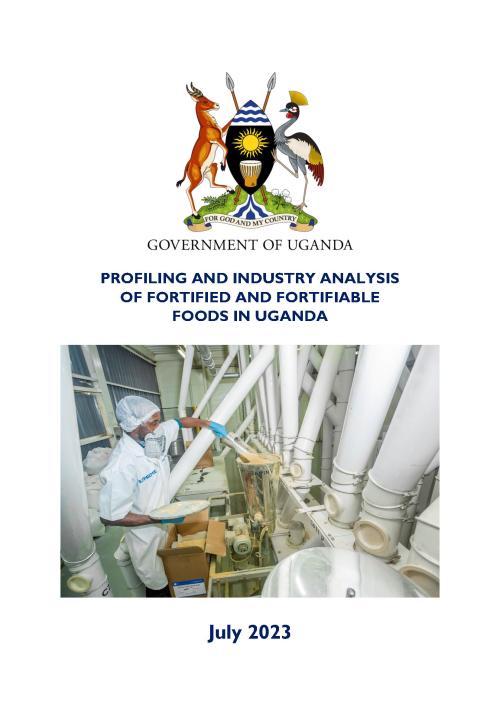The Ministry of Health (MOH) adopted industrial food fortification as one of its high-impact and cost effective interventions to contribute to the reduction of micronutrient deficiencies. Food fortification programming in Uganda is supported by the Food and Drugs Act, 1959; the Food and Drugs (Control of Quality) (Iodated Salt) Regulations, 1997; the Food and Drugs (Food Fortification) Regulations, 2005; and the Food and Drugs (Food Fortification) (Amendment) Regulations, 2011, which applies to industrial mills with a daily production capacity of 10 metric tonnes (MTs) or more for edible cooking oils and fats, 20 MTs or more for maize flour, and all mills producing wheat flour. The regulation also requires the fortification of all imported maize flour, wheat flour, and edible oils and fats. Any industrial food processor who meets these requirements must fortify the food products as per the national guidelines. We have some food processors who voluntarily fortify their food products to gain a market advantage or a similar business-related reason. Even though they voluntarily fortify their products, they must adhere to the national standards for that food vehicle. Additional operational tools and guidelines for the ministries, departments, and agencies (MDAs) include the national food fortification strategy, national standards, and guidelines.
